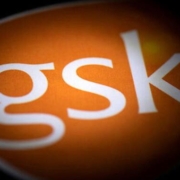Otsuka pays up to $1.1B to buy Jnana, adds drug discovery capabilities
Otsuka pays up to $1.1B to buy Jnana, adds drug discovery capabilities
Otsuka Pharmaceutical has struck a deal to buy Jnana Therapeutics for $800 million upfront and a potential $325 million in milestone payments for its drug discovery platform and pipeline led by a clinical-phase rare disease candidate, the companies announced Thursday.
Jnana discovers potential drug candidates by exposing protein targets to its library of chemical fragments inside living cells. The Boston-based biotech has designed the library to include a wide range of fragments that may bind and covalently label druggable pockets on the target protein. After finding a fragment that binds a target, Jnana screens a library of drug-like compounds to identify small molecules that engage the same part of the protein.
Otsuka’s statement on the reasons for the acquisition discussed Jnana’s platform before mentioning the drug candidates it has generated. The Japanese drugmaker said the platform can address hard-to-drug target classes including solute carriers, transcription factors and signaling scaffold proteins. Otsuka sees the platform as complementary to the capabilities of its existing subsidiary Astex Pharmaceuticals. Jnana, like Astex, will operate as a wholly owned subsidiary of Otsuka and will continue its R&D.
The biotech has used its platform to find small molecules that inhibit SLC6A19, a transporter responsible for intestinal absorption and renal reabsorption of phenylalanine (Phe). People with phenylketonuria (PKU) are unable to break down Phe.
Inhibiting SLC6A19 could enhance urinary excretion of Phe, helping to reduce levels of a molecule that accumulates in PKU patients and drives symptoms including brain damage. Jnana is putting that idea to the test in a Phase Ib trial. After 28 days of twice daily dosing, the biotech saw a 51% reduction in eight patients on its SLC6A19 inhibitor JNT-517. The reduction was statistically significant versus placebo.
Read the full article on BioSpace.




 © AbbVie Inc. All rights reserved.
© AbbVie Inc. All rights reserved.
 Reuters Health
Reuters Health


